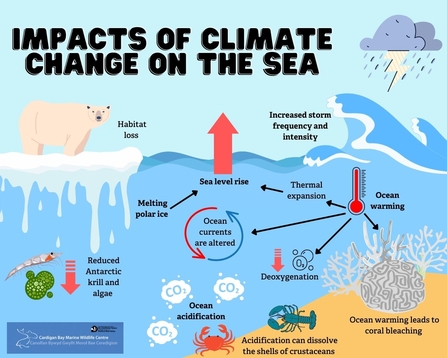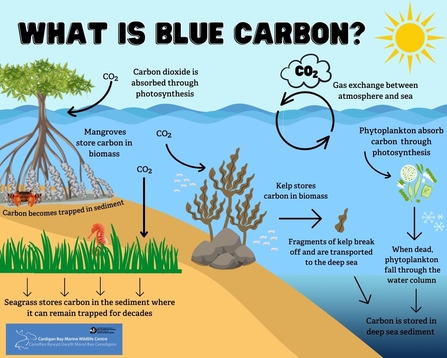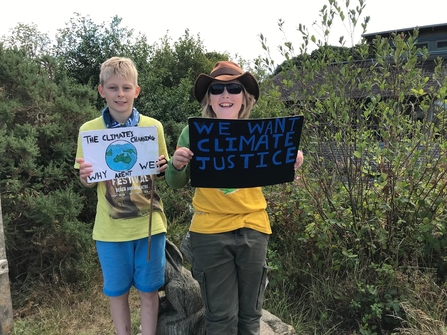Top 5 impacts of climate change on our seas
- Ocean warming
Ocean warming is the increase in ocean temperature due to climate change. This increase in temperature has further impacts such as ocean deoxygenation, melting polar ice, coral bleaching and altering ocean currents.
- Melting polar ice
The increase in global temperatures and ocean warming are leading to the melting of the polar ice. Every decade, 13% of Arctic sea ice is now shrinking due to climate change. The melting of polar ice contributes to sea level rise and reduces the habitat available for phytoplankton, krill, polar bears, and other marine species.
- Sea level rise
Over the last 140 years the global sea level has risen by up to 24 cm. This is due to thermal expansion and melting polar ice, which are both caused by ocean warming. Increased sea levels can result in flooding, habitat loss and coastal erosion.
- Increased storm events
The increased storminess of seas due to climate change can impact marine life as well as human activities such as shipping and infrastructure. Combined with rising sea levels, storms will have a higher size and reach which can lead to extreme coastal flooding.
- Ocean acidification
The increase in uptake of CO2 from the atmosphere as a result of rising emissions, changes the chemistry of the ocean and reduces ocean pH. This is known as ocean acidification and affects crustaceans such as crabs and lobsters by decreasing development and weakens the shells of mollusks such as dog whelks.




